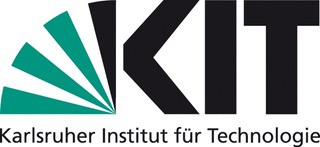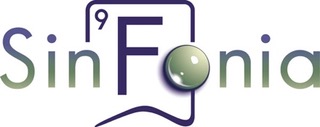»Constructive Disturbances of Art in Science« A Leonardo LASER Talk
Montag 15.5.2023 18:30–20:00
-
1 Bild

designforum Wien
Museumsplatz 1
1070 Wien
What happens to scientists and artists when their respective worlds meet?
Biofaction, a Vienna-based research organisation and science communication company, has explored intersections between art and science extensively over the years. Drawing on recent and widely varied ventures and partners, Biofaction will co-host a Leonardo LASER Talk (Leonardo Art Science Evening Rendezvous) together with the Institute for Technology Assessment and Systems Analysis (ITAS) within Karlsruhe Institute of Technology (KIT) and LASER host Klaus Spiess (Medical University of Vienna).
“Constructive Disturbances of Art in Science” will introduce science-art collaborations that are truly cross-disciplinary: synthetic biology, artificial intelligence in chemistry, plant based photography aka phytography, quantum computing, and slime mold meet music composition, visual arts, film, and an artistic dream of a psychosocial intervention in a nation’s microbiome.
From disrupting the workflow of a lab to asking novel questions out of the blue, from misunderstandings and culture clashes through new synergies and to lasting impacts, the event asks its participating experts to share their experiences with artist-in-lab residencies, artistic vision and scientific practicalities, challenges, and opportunities.
Leonardo/ISAST LASER Talks are a program of international gatherings that bring artists, scientists, humanists, and technologists together for informal presentations, performances, and conversations with the wider public. To learn more about Leonardo’s LASER Talks please visit the website: https://www.leonardo.info/laser-talks
To participate in person (capacity 50 people), please register for this event by sending us an Email to: registration@biofaction.com
The event will be recorded and streamed for international participants. To participate virtually please register at registration_streaming@biofaction.com
Contributors:
Eduardo Reck Miranda (UK) is an Artificial Intelligence (AI) scientist and classically trained composer. He is internationally known for his research in neurotechnology for music, creating music from genetic information and is championing investigation into quantum computing for musical creativity. He is a professor at the University of Plymouth, UK, where he leads the Interdisciplinary Centre for Computer Music Research (ICCMR). His opera ‘Lampedusa’, composed with sonification of subatomic particle collisions and live-electronics was premiered by BBC Singers. http://neuromusic.soc.plymouth.ac.uk/
Lara Tabet (LB) is a Lebanese medical doctor and visual artist working at the intersection of art, environmental and biomedical science, and politics. She specialized in clinical pathology at the American University of Beirut Medical Center and holds a certificate in General Studies from the International Center of Photography (New York). https://www.ltabet.com/
Christopher Coenen (DE), political scientist, is a research group leader at KIT-ITAS. He has widely published and communicated on new and emerging technosciences, especially at the intersections of biology, including human corporeality, and technology, and is the editor of “NanoEthics: Studies of New and Emerging Technologies”. https://www.itas.kit.edu/english/staff_coenen_christopher.php
Jens Hauser (DE/FR) is a media studies scholar, art curator, and writer focusing on the interactions between art and technology. He is currently a professor in art history at the Karlsruhe Institute of Technology (KIT), a distinguished affiliated faculty member of the Department of Art, Art History, and Design at Michigan State University, a senior post-doc researcher at the University of Applied Arts and the Medical University in Vienna, and an affiliated researcher at University of Copenhagen’s Medical Museion. He has curated about thirty international exhibitions and festivals internationally. https://ku-dk.academia.edu/JensHauser
Karl Svozil (AT) is a theoretical physicist and associate professor at the Institute for Theoretical Physics of the Vienna University of Technology, where he retired in late 2022. In his teaching and scientific research, he focused on several aspects of quantum physics, ranging from quantum cryptography to randomness. From 2012-2014 he was the president of the International Quantum Structure Association. In addition to his research interests, he also reflected on quantum music, quantum arts and their perception. http://tph.tuwien.ac.at/~svozil/
Chairs:
Markus Schmidt (AT) is the founder and CEO of Biofaction, a research, technology assessment, and art-science institute in Vienna, Austria. With a background in biomedical engineering, biology, and technology assessment, he works on the societal ramifications of novel biotechnologies, which also includes collaborations between art and science. https://www.markusschmidt.eu/
Klaus Spiess (AT) runs the Arts and Science programme at the Medical University of Vienna, where he is Associate Professor. He is renowned for his transdisciplinary work which he showcased at Haus der Kulturen der Welt Berlin, Beall Center for Art + Technology in Irvine and the Onassis Cultural Center in Athens ao. He has published in Tecnoetic Arts, Performance Research, and The Lancet.
With support and funding from:
- Biofaction via the European Union’s Horizon 2020 research and innovation programme under grant agreement No 814418 (SinFonia).
- FWF (Semiotic Symbiosis for the Posthuman Commons)
- Karlsruhe Institute of Technology





